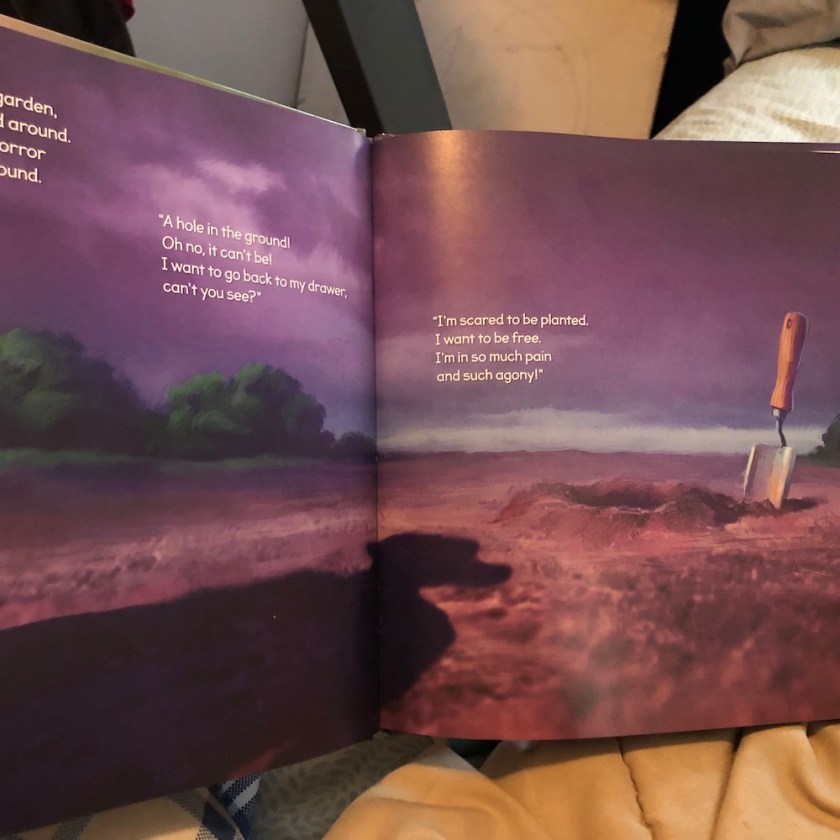By Damien Fisher
Dakota Bateman was a new Catholic, in love with the Eucharist, when she decided to go to the Franciscan University at Steubenville.
“It was the Catholic university, and my faith had been extremely important to me,” Bateman said.
Bateman, now 27, found her faith on her own after years of trauma, according to documents she shared. She had suffered through years of childhood abuse, including sexual abuse, making her especially vulnerable to predators.
It was at FUS where she met Fr. Benedict Jurchak, 45, a man who would become in short order her confessor, her spiritual advisor, and then her abuser. But even after Bateman came forward with her abuse in 2018, the Franciscan Friars of the Third Order Regular, also known as TOR, continued to put Jurchak into active ministry, reassigning him twice after she complained. Jurchak may or may not have been given what amounts to a written warning about his abuse.
Officials with the TOR declined requests for comment about Jurchak, his status, and his continued active ministry. We were unable to reach Jurchak about this story.
According to a police report, a letter from a canon lawyer who investigated the matters, and other documents provided by Bateman, Jurchak used his position and knowledge to groom her. Jurchak would eventually admit to a vague “boundary violation,” and the order continues to stand by him. Although Batemen reported his sexual assault to the police, to his superior, and to the diocese, the TOR issued a statement that there was a “single allegation” against him that “could not be substantiated.”
Bateman struggled with suicidal ideation as a teen, as well as anxiety, depression and eating disorders, as a result of her childhood abuse. She also had difficulty forming trusting relationships. Jurchak knew all of this.
The two became close while she attended FUS. He was her spiritual director while she was a student there, and they remained close after she graduated in 2015. Throughout their relationship as friends before and after graduation, Bateman said Jurchak kept using his knowledge of her past to break down protective aspects of the relationship. Looking back, there were many red flags, she said.
“He kept moving the boundaries,” she said.
In February of 2018, Jurchak visited Bateman at her home in upstate New York. During this visit, Jurchak got physical with Bateman. Based on the journals Batemen kept at the time, Jurchak engaged in unwanted sexual touching, behavior that is considered assault by law enforcement. These assaults continued over several days. Bateman froze during one of the initial assaults, a holdover from her past trauma, something Jurchak knew about.
“He used my previous assault as a roadmap. He did exactly what the guy before previously did,” she said in a video.
In June of 2018, four months later, Bateman contacted Jurchak’s provincial superior, who confronted Jurchak, according to the canon lawyer’s letter. Jurchak denied that anything took place. The matter was dropped until February of 2019, when Bateman contacted her local diocese.
At this post, Jurchak’s superior again spoke to him, and the priest denied wrongdoing. Instead, Jurchak told his superior that Bateman “came on to him” during the Feb. 2018 incident. He claimed her behavior forced him to stop offering her spiritual direction. Jurchak’s superior decided at this point to let the matter drop again.
Bateman next went to police in June 2019 to report the sexual assaults, but that investigation ended up being flawed. Bateman was initially unable to get a copy of the report she made to a detective for more than a month, and when she finally got it, she saw that it was full of errors and missing key details about the assaults.
Bateman engaged the help of JoAnna Brezee, an advocate with Vera House, a sexual and domestic assault crisis center in Syracuse, New York, and together they went to police to straighten out the report. The detective they spoke with was aggressive and confrontational, according to Brezee.
“I believe a report was never written and when she called asking for it, he found his old notepad and made one based off the few things he wrote down,” Brezee would later write in an email to a supervisor.
Though police declined to prosecute, the TOR finally responded to Bateman’s allegation by hiring a civil lawyer to investigate the case in August of 2019, more than a year since the allegations were first made and after the order twice decided that Jurchak was not at fault.
But Bateman said the order’s civil lawyer made a hash of the investigation and got major details wrong.
“I don’t think there is a single thing from him that is correct,” she said.
The result of the civil lawyer’s investigation was a finding that Bateman’s allegations were “unsubstantiated.” However, under pressure from the Altoona-Johnstown Diocese, a canon lawyer was brought in to investigate. This canon lawyer found her story credible, said Batemen, and would recommend punishment for Jurchak.
“For my part, I would note that “unsubstantiated” and “not credible” are two markedly different things,” the canon lawyer wrote.
Bateman provided us with a copy of the letter the canon lawyer wrote to Fr. Joseph Lehman, the head of the TOR. The canon lawyer’s name is redacted from the letter. According to the letter, Jurchak lied during the initial conversations with his superiors about Bateman’s allegations. He would later admit to “boundary violations,” but not the sexual assaults.
“Father Jurchak does not seem to dispute that he spent time alone with Ms. Bateman in her home over the course of several days, in fact, he acknowledged that a boundary violation of some sort occurred and texted Ms. Bateman to apologize for being ‘gross,’” the canon lawyer wrote. “This all happened despite the fact — and one could reasonably argue, perhaps because of the fact — that he was well aware of Ms. Bateman’s vulnerabilities around healthy boundaries and her fears of being rejected/abandoned.”
The canon lawyer stated that Jurchak was oblivious to the fact he had created the situation, and recommended he had a penal precept placed on file. The penal precept would be a written warning that if another such incident took place, he could be suspended, according to the letter. (A penal precept is intended as a canonical procedural step used to establish a situation in which superiors can punish a situation if it repeats. It’s intended to be used when a priest commits problematic behavior that can be corrected.) The canon lawyer also recommended that the TOR pay for Bateman’s therapy.
Whether or not Jurchak received the penal precept is unknown. Jurchak had been a vocations director while at FUS, recruiting men for the order. Soon after the investigation, he was assigned to a parish in the Altoona Johnstown Diocese in Pennsylvania. When Bateman found out he had been reassigned, she contacted the diocese, and Jurchak was again moved, this time to be the chaplain at the Armed Forces Retirement Home in Washington, D.C.
Bateman did not plan to speak publicly about the abuse, but after less than a year of treatment, the TOR stopped paying for her therapy in February of this year. Bateman said this was done by Lehman after she told him to stop contacting her directly.
“They cut me off after I asked Fr. Lehman to stop emailing me and talk to my therapist,” she said.
Lehman had been contacting her to keep tabs on her during the therapy that the TOR was paying for.
The contact from Lehman was triggering for her, especially as she got closer to the anniversary of her assault in February. When Lehman decided to cut off the funds for her therapy, it triggered a relapse of her anorexia, requiring hospital stays in February of 2019 and June of 2021.
Bateman said the TOR was using money as way of controlling her, a form of economic abuse. She said that she once had to wait to seek treatment for her anorexia while Lehman discussed the matter with someone else.
“He had to think about it and talk to somebody and then get back to me,” she said.
Bateman decided to stop requesting that the TOR pay for her treatment, in order to avoid being controlled by them. When she got out of treatment for anorexia this year, Bateman went public with her story of being abused by Jurchak. Lehman’s only response so far has been to issue a statement on April 29 about Jurchak’s current assignment.
According to the TOR statement, Jurchak is no longer at the Armed Forces Retirement Home because of Bateman.
“In 2019, Father Benedict had been temporarily removed from ministry when a single allegation of sexual misconduct involving an adult woman was reported to the Franciscans,” Lehman’s statement reads. “In the following years, both the police and an independent lay investigator reviewed the claim and found that it could not be substantiated.”
Lehman went on to say that because of the public outcry over Jurchak, the priest had to be removed from his assignment. Bateman called that statement that statement a slap in the face.
“They’re pretty much calling me a liar. He said that it ‘can’t be substantiated.’ He keeps hanging on to ‘unsubstantiated.’ But there’s a huge difference between ‘unsubstantiated’ and ‘not credible,’” she said.
Frustrated by the lack of response to her plight, Batemen took to social media and made a string of posts making her story public. She also recorded a seven-and-a-half minute video describing her ordeal, and posted it to YouTube.
“They don’t care about keeping people safe. The TOR only seem to care about their image, and whether their priests can continue the work,” Batemen said in her video.
It was the archdiocese of Washington DC, and not the TOR, that made the decision to remove Jurchak from the nursing home.
The TOR has a history of trying to cover for its own. Fr. Samuel Tiesi, a revered campus minister who died in 2001, was reportedly a serial sexual abuser who targeted female students. According to a report in the National Catholic reporter, everyone who could have stopped Tiesi knew about the abuse.
“The school administration and Tiesi’s religious superiors knew of the friar’s grooming and assault of female university students for years but took no action. Students who reported the abuse to university officials tell of being chastised, demeaned and made to feel they were betraying the friars and God,” according to the report.
Dave Morrier, a former priest, has been sentenced to probation for sexual battery for sexually assaulting an FUS student.
“Morrier was a Franciscan friar assigned to the university back in 2010. He is accused of committing sex crimes against the young woman between 2010 and 2013,” according to a local news report.
Bateman said the TOR needs to fix its culture that sustains abusers and punishes victims who come forward.
“At this point, the TOR needs to completely reform how they handle these things. He was removed by Washington; he wasn’t removed by the TORs. There’s no guarantee anyone is going to be safe from him.”
Bateman is still practicing her faith. She is still in love with the Eucharist. And she is still struggling.
“My faith has been important to me since I converted,” she said. “My faith has been the thing keeping me alive all these years. I couldn’t walk away from that. But it’s hard.”
***
The video Batemen posted to YouTube is below:























